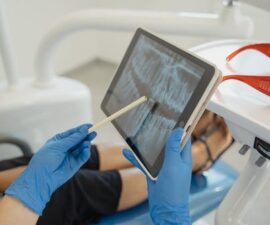When it comes to our pets, we all want the best for them. This includes giving them a healthy diet, enough exercise, and lots of love. But one thing that is often overlooked is the importance of regular vet check-ups. These visits play a vital role in ensuring your pet’s overall well-being, giving your pet a chance to prevent illnesses before they start, and identifying any potential health problems at their earliest stages. In the coming sections, we will discuss this topic in depth for better comprehension.
Understanding the Importance of Pet Health
The value of your pet’s health can’t be overstated. Just like us, our pets need regular check-ups to stay healthy. These visits are more than just a chance for your vet to say hi to your pet. They’re an opportunity to prevent serious health issues and catch other ones before they become too significant. Let’s take a closer look:
Maintaining Preventative Care
Regular vet visits give your pet the opportunity to get important vaccinations and preventative treatments. This helps to protect them from common diseases and infections, such as those caused by heartworms, fleas, and ticks. Not only does this keep your pet healthy, but it also prevents them from spreading any diseases to other animals.
Early Detection of Health Issues
During your pet’s check-up, the vet will perform a thorough examination. This includes checking your pet’s skin and fur for any signs of allergies or infections, listening to their heart and lungs to detect any abnormalities, and looking at their teeth and gums for signs of dental issues. The earlier these issues are detected, the easier they are to treat, and the better your pet’s chances of a full recovery.
Monitoring Weight and Diet
Vets can also use these check-ups to monitor your pet’s weight and diet. Overweight pets are at a higher risk of developing a range of health issues, such as arthritis, diabetes, and heart disease. Your vet can provide you with advice on feeding portions and exercise routines to help manage your pet’s weight, improving their health and quality of life.
Deciphering Vet Internal Medicine
Internal medicine is a key part of veterinary care. This refers to a specialized field of medicine that focuses on diagnosing and treating diseases that affect the body’s internal organs, such as the liver, kidneys, and gastrointestinal system. A trip to the Madison Park Veterinary Hospital kitten vet isn’t just about those adorable kitten shots. They’re also experts in internal medicine. Let’s dive deeper:
- Specialization In Medicine: Veterinary internal medicine professionals specialize in treating complex diseases in pets. They use advanced diagnostic tools and techniques to understand what’s going on inside your pet’s body. This allows them to create a personalized treatment plan for conditions ranging from digestive disorders to heart disease.
- Comprehensive Care: Vets specializing in internal medicine are not limited to one organ or system. They can treat a wide range of diseases, making them uniquely skilled to care for pets with multiple health issues or complex medical histories. This makes them an essential part of your pet’s healthcare team.
- Early Detection And Treatment: Similar to human medicine, early detection and intervention often make a significant difference in a pet’s prognosis. Routine check-ups with a vet specializing in internal medicine ensure potential problems are flagged early, making treatments more effective and possibly saving your pet’s life.
The Value of Pet Vaccinations
Part and parcel of pet health is the essential task of getting them vaccinated. Similar to immunizations in humans, pet vaccinations help to safeguard them from various illnesses. The injections stimulate your pet’s immune system to produce an immune response. This helps your pet to fight off the real disease if they’re ever exposed to it. An important aspect of this practice is holding a regular appointment with an internal medicine veterinary specialist. Here’s why:
- Preventing Diseases: The main benefit of pet vaccinations is that they can prevent your pet from becoming sick in the first place. Vaccines are designed to protect against specific illnesses, such as rabies in dogs or feline leukemia in cats. When administered correctly, these injections can spare your pet from unnecessary suffering and can even save their life.
- Saving Money: While there is some cost involved in getting your pet vaccinated, it’s often cheaper than treating the disease should your pet become ill. The veterinary care required to treat severe illness can quickly add up, making vaccinations a cost-effective investment in your pet’s health.
- Protecting the Larger Pet Community: Vaccinations also help to control the spread of diseases within the pet population. This herd immunity protects those pets who can’t be vaccinated, such as newborn puppies and kitties or pets with weak immune systems.
An Overview of Vet Services
Visiting the veterinarian isn’t just a matter of getting vaccinations or routine check-ups. Veterinary services also play a big part in managing a healthy life for our pets. From regular cleanings and screenings to prompt and correct diagnosis, the services facilitated by vets are vast and diverse.
This can come in handy; for instance, when you have a feline friend, a dedicated place like Madison Park Veterinary Hospital cat vaccinations station can be of immense help. But let’s dig into it a bit more:
- General Check-ups: Regular wellness exams help to detect problems early. These include physical examinations where the vet checks your pet’s weight, temperature, pulse rate, and respiration rate. They will also do a thorough examination of your pet’s coat, eyes, ears, nose, mouth, teeth, and gums.
- Specialized Treatments: Sometimes, pets require special treatments to manage health issues. These can range from heartworm treatments and dental cleanings to surgeries and rehabilitation. Most veterinary practices offer a wide range of services to address your pet’s unique health needs.
- Laboratory Services: Veterinary practices often have on-site laboratories where they can perform tests such as blood work and urinalysis. These tests help vets diagnose diseases and monitor your pet’s health.
Necessity of Regular Check-ups
Regular vet check-ups keep your pets in the best possible shape, both internally and externally. Each visit to the vet provides a chance for a comprehensive pet examination, ensuring that everything is in order with your pet’s health. During these check-ups, your vet can update your pet’s vaccinations, perform tests to rule out any harmful parasites, and examine your pet’s body for any other signs of illnesses. Below are some reasons why these check-ups are essential:
- Health Screening: Health screening is a critical aspect of regular check-ups. It’s an opportunity for your vet to run a series of tests, such as pet blood work or internal organ assessments, to determine if your pet is at risk for common illnesses. The results allow your vet to catch potential health problems early and help you take preventive measures.
- Dental Health: Many pets, like humans, can suffer from dental problems. Regular dental check-ups can prevent these issues or help to treat them before they become serious. Maintaining good dental health can prevent bad breath, tooth loss, and associated discomfort or health complications.
- Behavioral Issues: Another crucial aspect of vet visits is the chance to discuss any behavioral concerns. Changes in your pet’s behavior can sometimes indicate underlying health problems. Your vet can help you understand what might be causing these changes and suggest ways to address them.
Emergency Care and Chronic Diseases
While we all hope that our pets never have to face any emergencies or deal with chronic diseases, the harsh reality is that they sometimes do. Whether it’s an accident, an unexpected illness, or a chronic condition, having a vet who knows and understands your pet helps them to provide the best possible care. Your vet can give your pet immediate and effective emergency care due to their familiarity with your pet’s entire health history.
- Managing Chronic Illnesses: Pet diseases like diabetes, kidney disease, or arthritis require consistent care and a keen eye for symptoms. With regular check-ups, vets can manage these conditions effectively, reducing discomfort and improving your pet’s quality of life.
- Emergency Care: In case of an emergency, having a trusted vet is vital. They understand your pet’s medical history and can act quickly to treat any severe conditions. Additionally, they will provide supportive care, if necessary, ensuring your pet’s comfort during troubling times.
- Monitor And Update Medical Records: Regular vet check-ups offer the chance to update and maintain comprehensive medical records. Monitoring changes over time can be crucial to diagnosing potential issues or adjusting treatment plans.
To Spay or Neuter
One conversation you’ll likely have during a vet visit concerns the decision to spay or neuter your pet. Spaying (for females) and neutering (for males) refer to the surgical procedures used to prevent pets from reproducing. But it’s not just about preventing unwanted litter. These surgeries also possess other health benefits.
- Health Benefits: Both procedures can prevent certain types of cancers and infections. For instance, spaying eliminates the risk of uterine infections and reduces the risk of breast cancer in female pets, while neutering can prevent testicular cancer in males.
- Behavioral Benefits: Spaying or neutering your pet can also result in better behavior. Unspayed females usually go through a heat cycle that can result in excessive barking, urinating, and nervous behavior. Unneutered males can become aggressive and prone to roaming.
- Population Control: Perhaps the most recognized benefit of spaying and neutering is population control. Many shelters are overwhelmed with unwanted pets. By choosing to spay or neuter, you can be part of the solution.
Radiology Services for Pets
Radiology is an integral service in veterinary care. It allows vets to visualize your pet’s internal body structures, helping them to diagnose a wide range of health conditions. Whether it’s checking the health of your pet’s heart or identifying a fractured bone, your vet relies heavily on radiology to keep your pet in the best possible health.
- Diagnostic Tool: Radiology services, such as X-rays, ultrasounds, and CT scans, can provide a clear picture of your pet’s internal body structures. This can help in diagnosing conditions that might not be apparent from a physical examination alone.
- Non-Invasive: One of the main benefits of radiology services is that they are non-invasive. This means that your pet doesn’t have to undergo surgery for the vet to get a clear picture of what’s happening inside their body.
- Speed And Accuracy: Radiology services offer quick and accurate results. This means your vet can often provide immediate feedback and start your pet on a treatment plan sooner.
To End
In conclusion, regular vet check-ups are a fundamental part of responsible pet ownership. They provide the foundation for preventive care, early detection of health problems, and efficient treatment plans. From vaccinations and routine screenings to managing chronic conditions, your vet is an invaluable ally in maintaining your pet’s health. Remember that, just like us, our pets deserve the best healthcare to live a long, happy, and healthy life.



